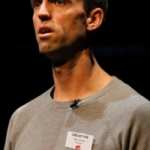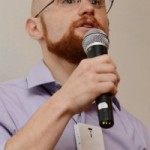Marc Levinson’s professional life has centered on making complex economic issues understandable to the general public. Much of his work has been international in focus, dealing with international trade and globalization, international finance and financial regulation, and energy and environmental issues that cross international borders.
He has written five books that merge economics and business strategy with historical research. He has also written many articles for leading publications, such as Harvard Business Review and Foreign Affairs, and contributed historical pieces to Echoes, the former economic history blog at Bloomberg.com. He frequently reviews books for The Wall Street Journal and other publications.
Marc Levinson’s career began as a journalist, reporting on business for Time magazine and the Bureau of National Affairs (BNA) and serving as editorial director of the daily Journal of Commerce in New York. After several years writing about business and economics for Newsweek, he became finance and economics editor of The Economist in London. In 1999, Levinson joined the predecessor to JP Morgan Chase, where he created a unique industry economics function that married economic research with stock and bond analysis and developed a line of environmental research products for institutional investor clients. He has advised Congress on transportation and industry issues and serving as senior fellow for international business at the Council on Foreign Relations, and has consulted for a number of businesses and public agencies.
Levinson received his bachelor’s degree from Antioch College, master’s degrees from Georgia State University and the Woodrow Wilson School at Princeton University, and a doctorate from the City University of New York.
http://www.marclevinson.net/
On Innovation Navigation, Marc Levinson discussed his recent book, detailing the history of A&P, a former paragon of American retail. From humble origins, A&P redefined the very concept of the grocer – being the first to utilize tin cans, cardboard boxes, and product branding to radically change the shopping experience. The store introduced the chain grocery store model, providing standardized experiences that customers could trust, including clear brand-name products that they could handle before purchasing. A&P was innovative in ways that would make a modern manager or consultant proud – it improved its core product, the retail experience, while broadening innovation in categories like more business, as it added butchers, bakers, and more, supply chain management, and more to out-innovate and out-compete the marketplace. Ultimately, A&P is instructive not just for its success, but for its failure. After the founders passed away, company insiders tried to run the company by their model, but the lack of innovation took a toll on A&P’s competitiveness in an increasingly crowded market, and this coupled to the pressures of being a public company ultimately resulted in the company’s bankruptcy.




















